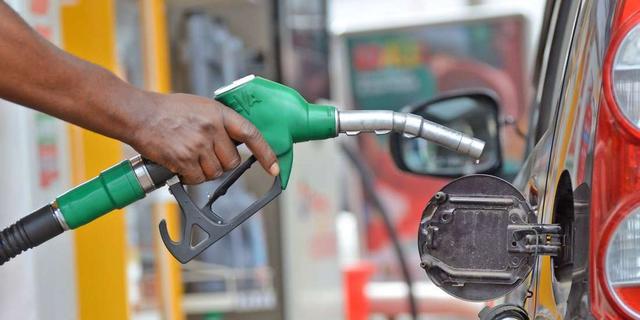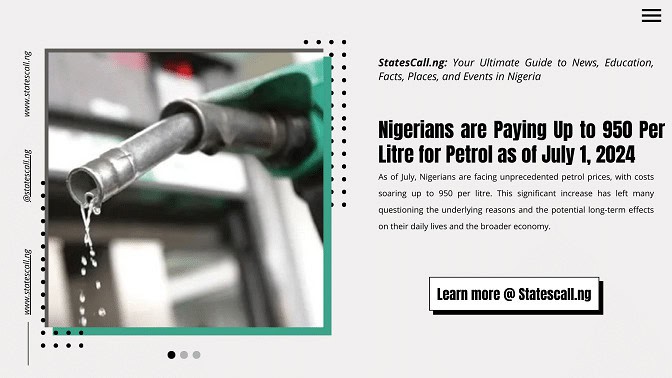- Nigerians are Paying Up to 950 Per Litre for Petrol
- Factors Influencing Nigeria's Gas Prices
- Nigerian Black Market Fuel Prices as of Right Now
- The Takeaway
As of July 1, 2024, Nigerians are facing unprecedented petrol prices, with costs soaring up to 950 per litre. This significant increase has left many questioning the underlying reasons and the potential long-term effects on their daily lives and the broader economy.
In this article, we delve into the factors contributing to these steep prices, including supply chain disruptions, governmental policies, and global market trends. Understanding why Nigerians are paying up to 950 per litre for petrol is crucial for grasping the broader economic implications and preparing for future financial planning.
Read on to uncover the full story behind these record-breaking fuel prices and their impact on Nigeria.
Nigerians are Paying Up to 950 Per Litre for Petrol

One of the most important commodities in Nigeria is gasoline, or fuel, which powers many facets of the country's everyday operations and economy. Nonetheless, several variables, including supply and demand, exchange rates, global oil prices, and subsidy programs, have caused fluctuations in the price of gasoline over time.
Initially as of June 1, to 10,2024 petrol was sold to Nigerians 950 per litre in most parts of the country. As we go into this article, we will be stating the current official price of fuel per litre as of today July 1, 2024, which is 650-620 in Nigerian naira.
Factors Influencing Nigeria's Gas Prices
- Subsidy Policy: In the past, the Nigerian government has kept gas prices low by providing subsidies. Nevertheless, the government eliminated these subsidies in 2023, which led to a significant increase in price from ₦195 to ₦617 a litre. The goal of the elimination was to cut back on government expenditure and reallocate money to other important areas.
- Global Oil Prices: Nigeria cannot refine its petroleum products, thus it imports them. As a result, the price of gasoline in Nigeria is closely linked to the price of crude oil on the international market, which is subject to changes due to the dynamics of global supply and demand as well as geopolitical events.
- Exchange Rate: The price of imported gasoline is mostly determined by the naira's exchange rate against the US dollar. A depreciating naira makes imports more expensive, which has an impact on the price of gasoline at home.
- Supply and Demand: Petrol prices are also impacted by changes in demand (such as those caused by economic activity and seasonal fluctuations) and disruptions in the domestic supply chain (such as pipeline vandalism and refinery problems). Prices are usually higher when there is a limited supply or higher demand.
Nigerian Black Market Fuel Prices as of Right Now
In Nigeria, the illicit gasoline business is a big and intricate problem. The country's regular fuel shortages, which are frequently brought on by issues including insufficient refining capacity, pipeline vandalism, and corruption, give rise to this unauthorised market.
Because unlawful trading entails risks and costs, prices in this market are usually higher than official rates. petrol availability determines how much is sold for petrol on the black market in Nigeria. Prices can soar during times of extreme scarcity, often even tripling or double the official price.
However, black market pricing could be more in line with official rates during times of relative abundance. It's crucial to remember that these costs are not set in stone and might differ greatly between locations. As of June 15, 2024, the price of petrol varies between 800 NGN and 1,200 NGN on the black market in Nigeria.
Excessive fuel costs may be detrimental to the nation's economic expansion. They have the potential to discourage investment in the manufacturing and transportation sectors, which are essential for generating jobs and diversifying the economy. Over time, this might make it more difficult for Nigeria to lessen its reliance on oil income.

